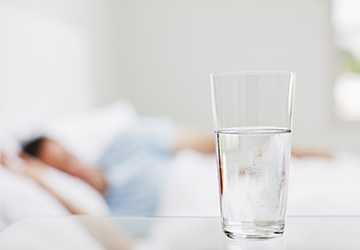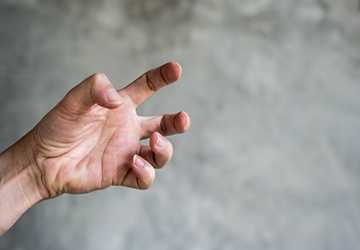8 Home Remedies That Help With Adult Bedwetting
Author: Luna Tumbler
Bedwetting or nocturnal urination during sleep is a common symptom in young children, but many are unaware that it affects most adults as a temporary or chronic condition. An estimated 2 to 3 percent of adults suffer from bedwetting, and the statistic could be higher since not many people want to admit they struggle with the problem.
If you suffer from bedwetting, the first thing to know is that the condition and most causes are usually treatable—often with just a few lifestyle adjustments and home remedies at home. There is no need to be ashamed or suffer from such mild symptoms.
Here are eight simple home remedies that help relieve bedwetting and even cure symptoms in the long run.

1. Change meal times
Some of the top things that can trigger bedwetting in adults are diet-related: Many foods can upset your body or cause bladder and kidney infections, and bedwetting can be an accompanying symptom. Your frequent bedwetting is one of the first things you should do double-check your diet and cut down on artificial ingredients.
If it's not what you eat causing it, it's most likely what you're eating. If you eat late in the day or often wake up for a late-night snack, it's not uncommon for your body to have digestive issues this late in your routine. This puts pressure on the body and the bladder; some people wake up while others don't.
Adjust your meal times and see if that makes a difference.
2. Set an alarm
Suppose you suddenly notice bedwetting as a temporary or more chronic symptom. In that case, you should immediately consider any other symptoms you may be experiencing to determine the cause of your bedwetting yourself. Sometimes the symptoms associated with it can tell a lot - if you have frequent, painful, and bedwetting symptoms, it could be due to a kidney or bladder infection.
In addition to the symptoms themselves, you should also pay attention to the timing of bedwetting. If it only happens after eating certain things or drinking alcohol, try eliminating those factors and see if it improves.
Bedwetting is also often associated with a specific point in time that falls into your body's natural rhythm and doesn't just happen to wake you up. If you notice this happening, set the alarm, pee, and go back to sleep.
3. Detoxify the body
The body is exposed to thousands of different chemicals and pathogens every day, and even if you moved to the cleanest place on earth, you can't avoid exposure to toxins altogether. They are everywhere, and the best thing we can do to stay healthy is learn how to minimize the risk of exposure or injury, such as choosing fresh and organic overly processed foods and exercising regularly.
Detoxing your body is essential if you want to maintain good health. It improves your immune system, which means you'll get sick less often and be less prone to bladder and kidney infections, a common cause of uncontrolled bladder and bedwetting in adults.
There are a thousand more reasons why you should detox, but the most important thing you need to know is that it's better for your health.
4. Drink less fluids
Doctors and most experts recommend drinking up to eight glasses of water daily. However, recent research has shown that eight cups is not a hard and cold truth. Your water intake should not be limited to eight glasses per day but depends on your weight, height, and environment.
For example, people need more fluids in hot climates and must increase their water intake whenever they exercise or get sick.
Drinking too much fluid at night or before bed can be among adults' most common causes of bedwetting. If you experience this symptom and changes to your daily routine and diet don't help, reduce your fluid intake.
If symptoms persist, see a doctor.
5. Switch to decaffeinated coffee
Every day, millions of people can't imagine starting or ending their day with any caffeinated beverage. For some, it might be a soft drink; for some, it might be a soft drink. For others, it might be a coffee or an energy drink. If you suddenly wet your bed, eliminate caffeine and coffee from your diet.
If you like the taste, substitute something decaffeinated, a diuretic that causes you to urinate more.
Too much caffeine can be bad for you, too, and the associated symptoms are likely to affect your kidneys and bladder—significantly if you don't cut back on your caffeine intake when symptoms appear. Even the liver can be damaged, and bedwetting can be a related symptom.
In some cases, it's sugar. Test your blood sugar levels.

6. Stress Relief Tea
Stress is one of the most common causes of bedwetting, especially when there has been recent trauma or reliving an old traumatic experience. Suppose you suddenly find yourself wetting the bed during a stressful period. In that case, the first thing you should do is identify what's triggering your stress response -- and, if possible, reduce the stress levels in your life as much as possible. Have the ability to do this.
The health benefits of a well-brewed cup of tea are well known. These benefits include being able to reduce your stress levels and generally calm your blood pressure as well. Both can lower stress levels before bed and reduce the frequency of nightmares or bedwetting.
In the meantime, remember that your fluid intake can still trigger bedwetting: Don't drink water right before bed.
7. Tips to reduce stress
Stress is one of the most common causes of bedwetting in adults and is common in adults going through a challenging mental time. This condition often occurs after a traumatic experience. Some even see it as a common symptom when they experience an extraordinary lifestyle or a change of scenery, such as joining the military. When this happens, there's nothing to be ashamed of, though the potential embarrassment of the situation often adds to the stress and worsens the situation.
From counting to ten in stressful situations to meditation, there are many things you can incorporate into your life to lower your overall stress levels—and if stress is the cause of your bedwetting, it may be enough to eliminate it.
If symptoms persist, try something else or see your doctor next.
8. Muscle exercises
Muscle weakness and degeneration are common and affect almost everyone to some degree as we age. In some cases, early-onset muscle weakness is due to specific health problems or a recent injury; in many cases, muscle weakness leads to other symptoms in the body. Bedwetting is just one of them, though it's undoubtedly one of the most embarrassing symptoms on this list.
Sometimes muscle weakness occurs only in the muscles that control the bladder. In this case, Kegel exercises can help you regain control of these critical muscle groups.
If other muscles are the culprit, get your muscles overhauled by a specialist and create a simple routine to help you recover. Sometimes, the spinal muscles can even be involved in losing bladder control, and exercising them under the guidance of an expert can be very helpful.





